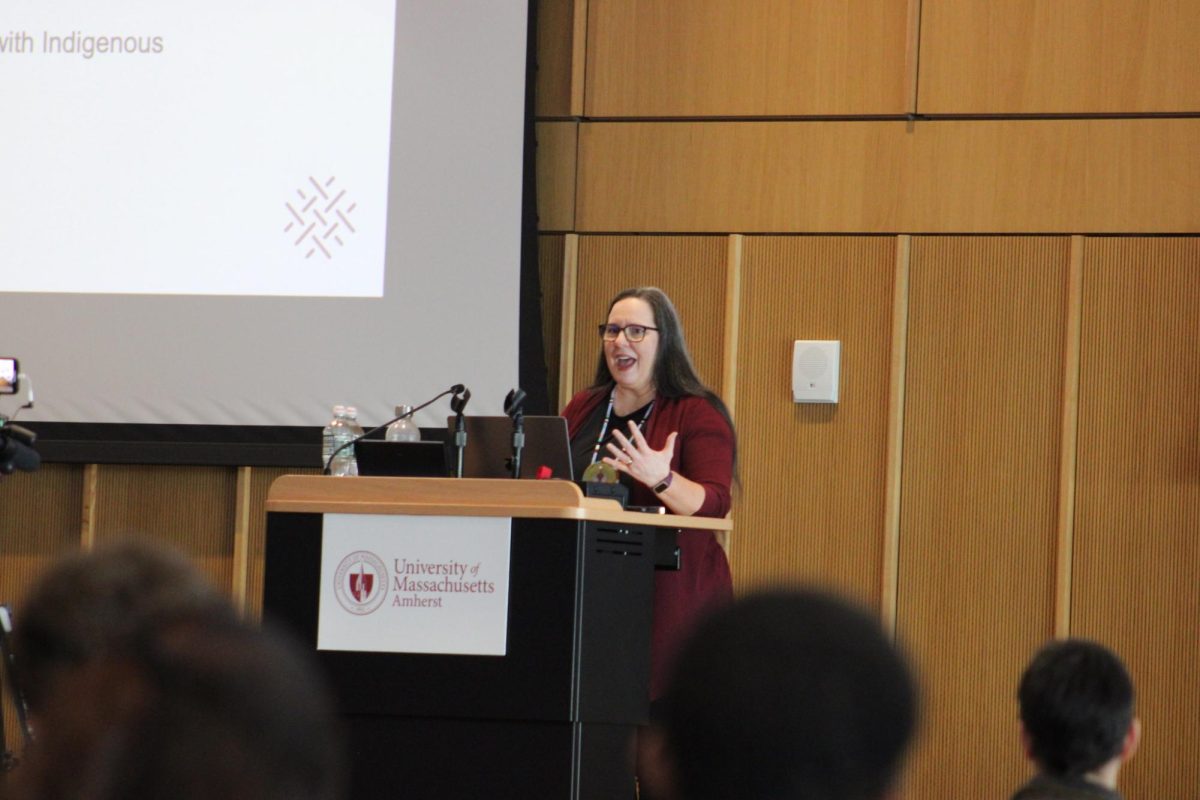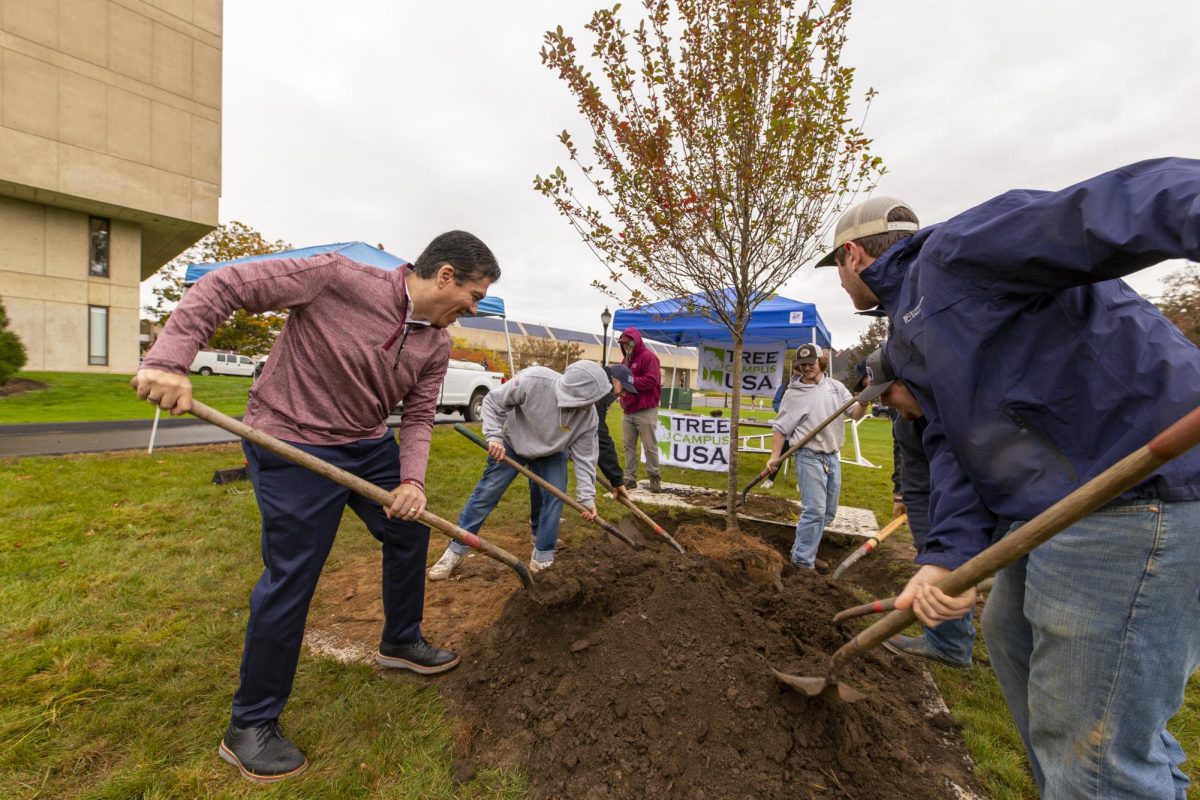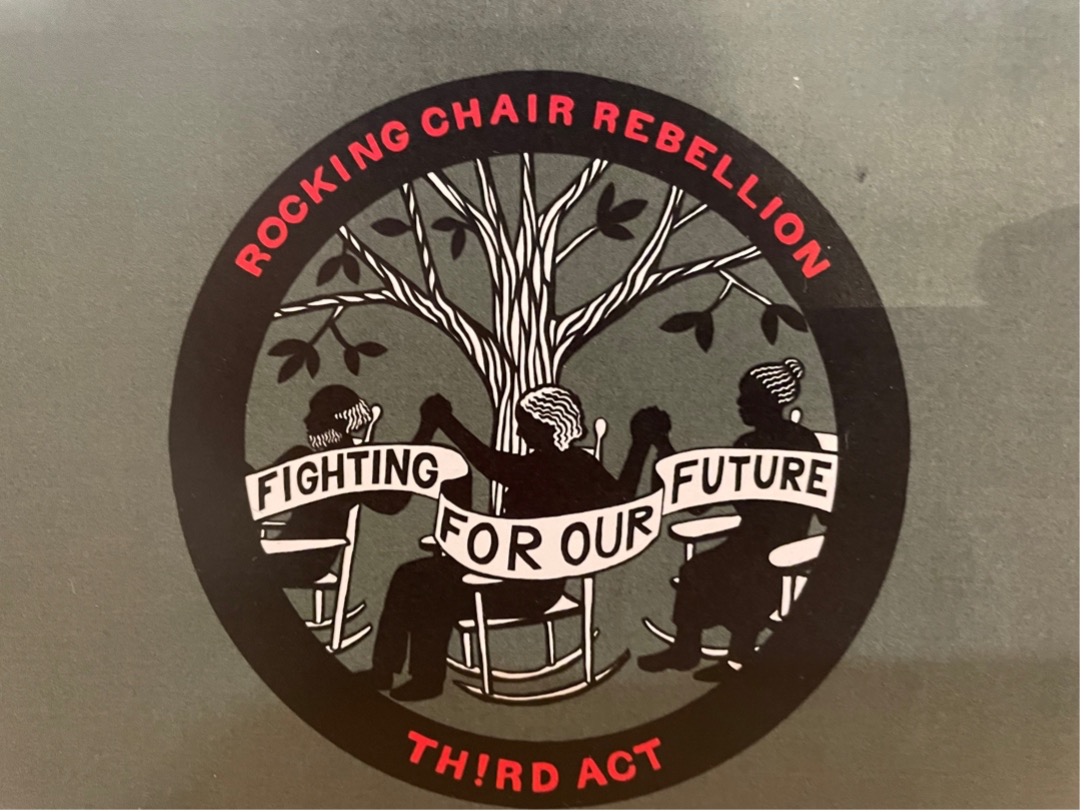In coordination with National Arbor Day on April 30 and as part of the “Spring 2010 TEI Environmental Lecture Series,” the University of Massachusetts hosted a lecture by Nalini Nadkarni, a National Geographic Speaker, Tuesday night in the Stockbridge Bowker Auditorium.
About 150 guests attended to hear Nadkarni, a forest canopy researcher and professor at Evergreen State College in Olympia, Washington, speak of her experiences in scientific research on tree canopies and ecologies in the U.S. Pacific Northwest, Costa Rica, Papua New Guinea and the Amazon.
Her lecture, “Between Earth and Sky: Our Intimate Connection with Trees,” chronicled the connections from the forest canopy to the canopy floor, and the canopies’ importance of sustaining biodiversity, sustainability and human awareness.
“This is about public outreach into the sciences and engaging with non-science related audiences,” said Nadkarni. “Outreach is about the ability to make connections between each other’s disciplines.”
After more than two decades of climbing throughout tree canopies and conducting extensive research, Nadkarni said she wanted to outreach and that keeping the information within the scientific and academia world would not serve its importance in justice. She began to outreach in prisons, churches, boardrooms, bookstores, hair salons and tattoo parlors, emphasizing that trees can serve as an important part in environmental sustainability universally.
Her outreach methods are unconventional, but she noted her success is based on the critical issue of preserving tree canopies and the ability for all to connect to the power of trees.
Nadkarni has targeted difference demographics to teach about preserving the tree canopies, with one demographic being young girls. She created a “Treetop Barbie,” from recycled barbies outfitted to one similar of that a canopy researcher.
Nadkarni highlighted social and economic justice in the research of trees and outreach, as she implemented a program in five Washington State Prisons. The program allows inmates to grow 200,000 plugs of plants for prairie vegetation, lichens and moss and to grow the dwindling population of the Northwest Pacific’s orange-spotted frog population. The program was successful in its social reform within and outside the prison walls.
As a result of the success of Nadkarni’s program and outreach in prisons, Washington State legislators demanded that all prisons enforce more sustainable regulations and programs for inmates.
“Outreach is what I can do as a scientist to prevent negative consequence of human activities,” she said.
Her career has involved linking ecology with recreational values, social and economic values and spiritual values.
She noted that her work has been in conjunction with a growing amount of information on the tree canopy.
“Until 25 to 30 years ago there wasn’t a lot known about the tree canopy,” she said. The need for tree canopy research is growing with the concern of climate change and global warming.
“I see myself as a scientist, an educator and a collaborator,” said Nadkarni.
The event was not only a lecture with scientific data, but rather, a personal reflection of Nadkarni’s religious and spiritual background – and the connection it has to trees. Nadkarni’s father was a pharmacologist of Hindu faith and her mother a linguist and orthodox Jew. With her diversified background in science, research and religion she fused an appreciation of trees, the life they give to nature, and how they serve as an educational tool – on a universal level.
Nadkarni said that no matter the species, trees are a universal connector to the human condition. Trees breathe life, they give life, they support other growing and living organisms – much like humans, she said.
Nadkarni said, “Trees have trunks. Humans have trunks. Trees have limbs. Humans have limbs.” She said it wasn’t a coincidence that the Old Testament had 328 references to trees and forests, explaining they are the very root of life.
The lecture showed a clip of “Heroes of the High Frontier,” which documented Nadkarni’s work and research and also won an Emmy Award for Best Documentary Film in 2001.
Next week Nadkarni will travel to Washington D.C. to receive a 2010 National Science Foundation Award.
Chelsea Whitton can be reached at [email protected].






